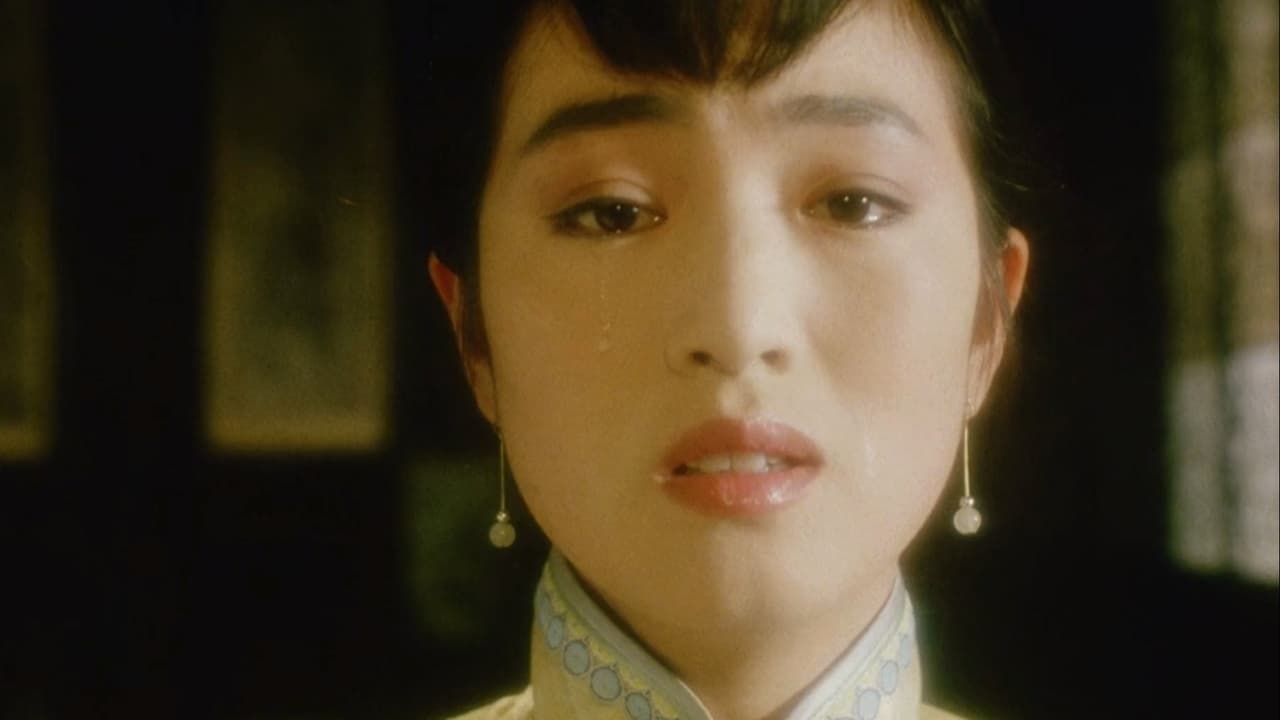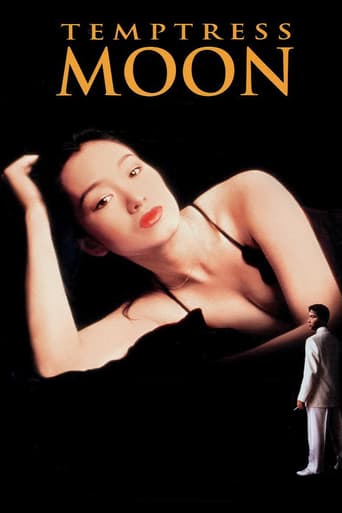

Wonderful character development!
... View MoreTruly Dreadful Film
... View MoreReally Surprised!
... View MoreThis is one of the few movies I've ever seen where the whole audience broke into spontaneous, loud applause a third of the way in.
... View MoreAs the story unfolded I began to feel that it had been cribbed from a Russian novel. A set of unlikeable codependent characters feeding on each other's misery. The dark tale of a once powerful family's decadent descent into impotent obscurity serves as an allegory for the Ching dynasty. I only wish that there had been more character development, the minor family member Duanyu, who ended as the head of the family - what was his motivation for his betrayal of Ruyi? The photography is sumptious, and the performances beyond reproach. The films moves slowly and requires the audience to pay attention, but for those who like a dark tale of pending doom and destruction it is worth it.
... View MoreAnother exorcism by Chinese master Chen Kaige (who directed "Farewell My Concubine" three years earlier), of China's disastrous meltdown in the early 20th Century. An old landed family sinks into decadence as the Qing dynasty collapses and the chaotic early years of a Chinese republic swirl around their ghostly ancestral hall and mansion gardens.Into this scene returns an extended-family member, Zhongliang (played by Hong Kong star Leslie Cheung), ostensibly to position himself for his Shanghai gang's takeover of the estates. But Zhongliang's return home awakens old wounds and rips open all new ones in a family reeling from generations of drug use and the collapse of an ancient civilization.Cousins, brothers-in-law, sisters, then become embroiled in a sick game of love, lust, and revenge. This is a very sobering film yet hauntingly beautiful at times. All performances, from a radiant Gong Li, down to the smallest roles, are superb. The character development is profound, the story compelling, and the production values are stunning. A first rate movie.
... View MoreFew film makers capture this history of China from a Chinese production company, unless it is a propaganda piece. Excellent acting by the beautiful and fabulous Gong-Li and Leslie Cheung.Gong Li as Ruyi, falls into the rare, but possible, role of head of the Pang Family, a somewhat traditional family in Shanghai, China; after her older brother falls into opium addiction and her father dies.As a family head, she is almost in the status of a ruling house, and requires a marriage; confidential advisors; and love. By reason of her birth, she is also sheltered froom the world.Still banned, at this writing, from circulation in China; this beautiful story photographed in a nearby Shanghai location; with actual ancestral hall and mansion with garden; transcends the dynasty (as it begins in 1911-12) through two decades of the new Republic. Cheung is a Capo or Dai-Lo of a Shanghai Triad after growing up in the Pang household. Gong-Li lives with the duty a death has given her, after "elders approval" and must cope with her childhood friend & cousin as a lover and trusted adviser; while being courted by the returned from Shanghai Cheung; with whom she falls in love.
... View MoreWhen I rented this after reading the pitiful, typically over-sensualized box, I hoped only that it might struggle above tepid mediocrity in some way. In fact, I saw it and despised Leslie Cheung's petty Songlian and his sister Caifei He for the first hour.Yet then I began to realize how intricately woven the characters and plot were as visual symbols began reappearing, and the movie began to happily shirk off introductory pretenses and reveal the forces behind the characters and their actions. Songlian's pettiness began to reveal itself as an intense and justifiable self-hatred, and that of his sister as terrible hopelessness. Meanwhile the others in the movie undergo powerful transformations as well, as we see how people struggle to bring their own beliefs to bear beneath the tidal wave of external circumstances. We see how they fail, and how their failure propogates their weaknesses, undermining others.Overall we see the power of the subversive as it plays on the human mind and heart. We see beliefs destroyed at several levels, we see new beliefs emerge, less pure and more calculating. We see regret unfold in each of the characters, or worse, cold numbness to it from enduring too much.And there is nothing to regret about the movie, except that the subterranean depths of the content make recommendation difficult (this is not a movie for most grandmothers, even though it is still delicate in how it examines its touchier subject matter). Still, it is beautiful in everything it does. The sights, the characters, the transformations, even the twistiness. We rever the characters and their changes, for good or worse because we understand them irrevokably. The movie is highly rich and interwoven. Elements interplay even down to recurring symbols, and by the end we realize that the entire movie is really symbolized in the first ten minutes, even though there is no way we could realize that from the beginning even if told so. Those ten minutes where we see the beautiful Pang estate, and the children, and life so revoltingly innocent at first glance. That is purposeful. What we take for inconsequential initially is proved to be far from it, and really that contrapuntal layering of pretended motive and deeper meaning continues throughout.Every minute in this movie counts. Every side glance reflects meaning. "The Piano" was supposed to be subversive, sensual, touching and powerful, showcasing how the heart must contend with external harshness. However, it is clumsy, ugly, blatant, and ineffectual in comparison to "Temptress Moon" which tells so much more with so much less, and it breaks our heart unspeakably, but is above the painful, selfish bitterness or wallowing found in "Farewell My Concubine", "Raise the Red Lantern", and "Indochine" which really tell stories half as complex (maybe not Indochine). The characters in Temptress Moon are noble, despite and because of their outer twistedness and rent hearts.A sumptuous earring, a swinging lamp, fresh roses, Songlian's longings for Peking, and twisting opium smoke and speeches on its merits and cruelties-- all these symbols snake by at first, yet come to how powerful meaning in the end, and they strike us at many levels in the movie, each time richer with understanding. I left far surprised and impressed. Finally, a movie great enough to express itself in humility of pretenses. If only they'd ditch the stupid and coarsely sensual box.
... View More